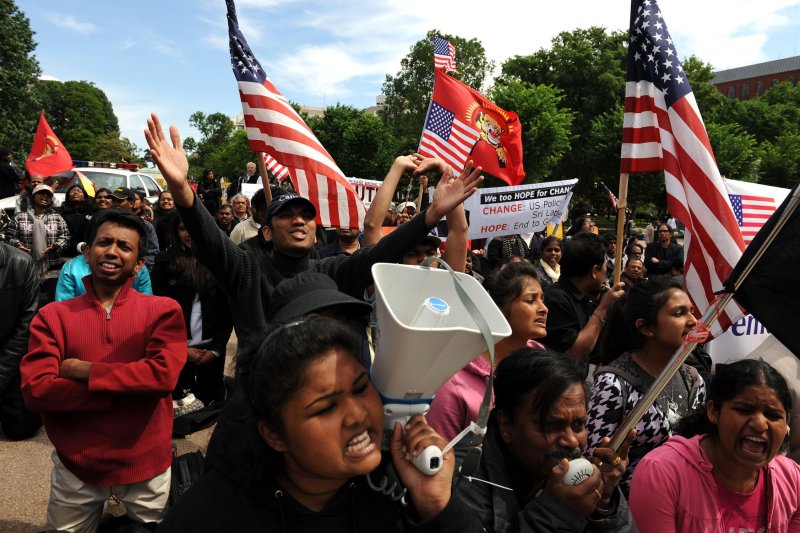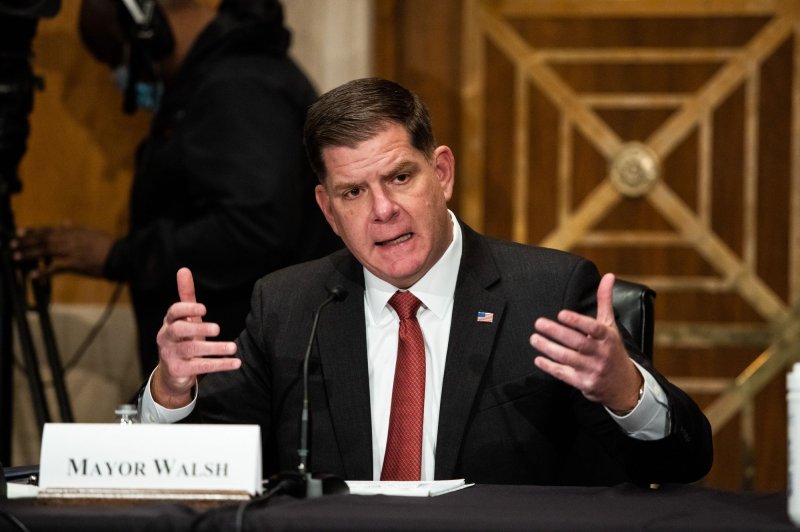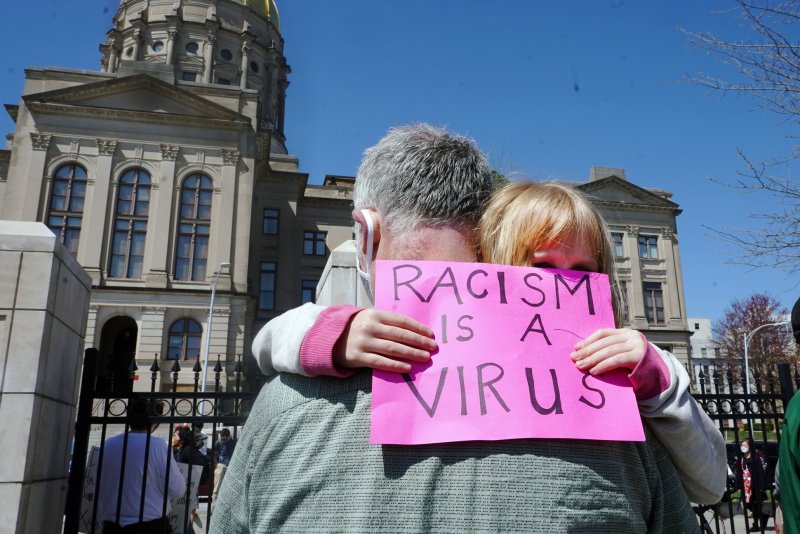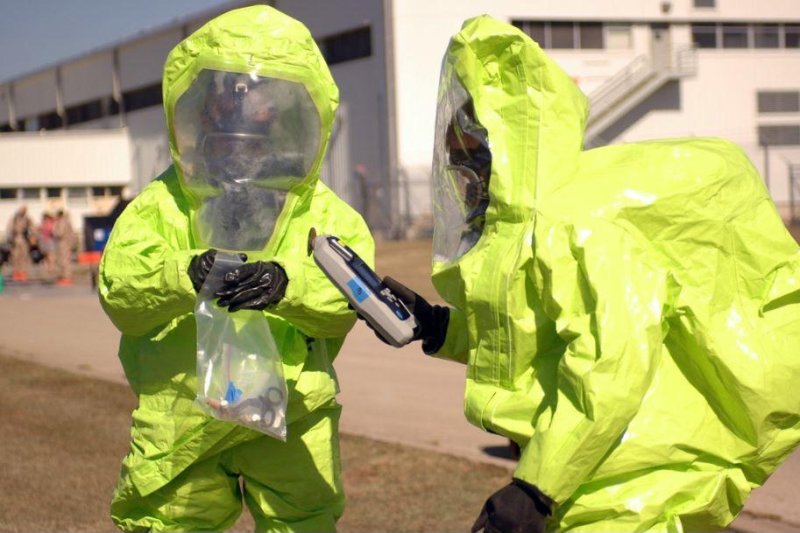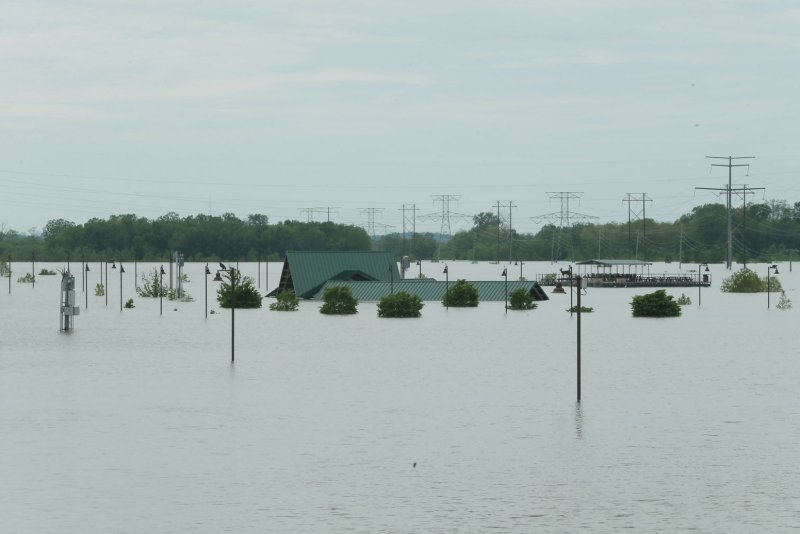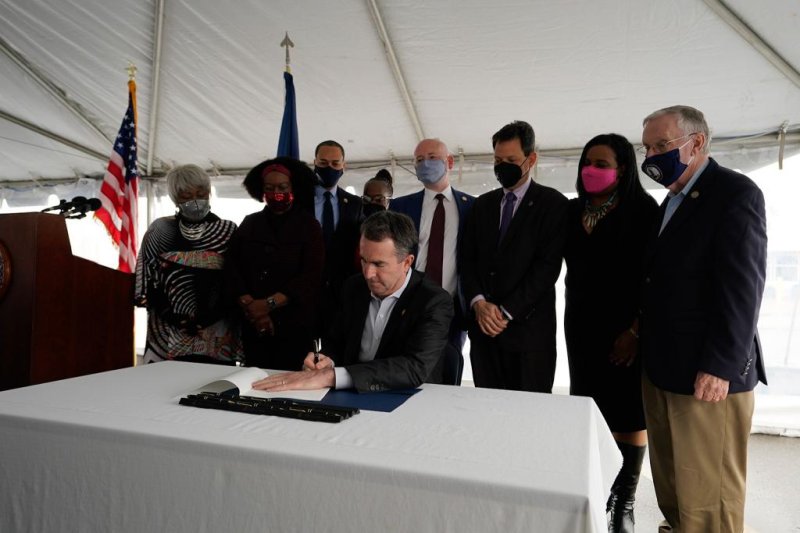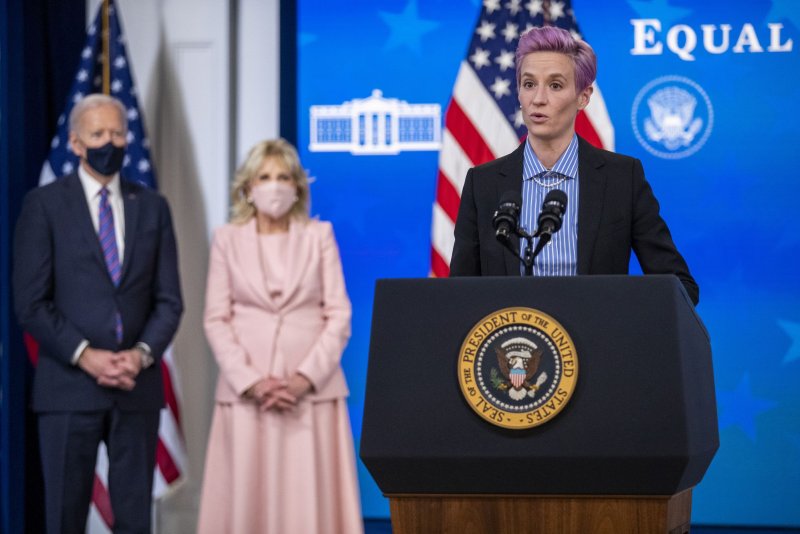DESPITE SUPPORTING THE BURMESE JUNTA
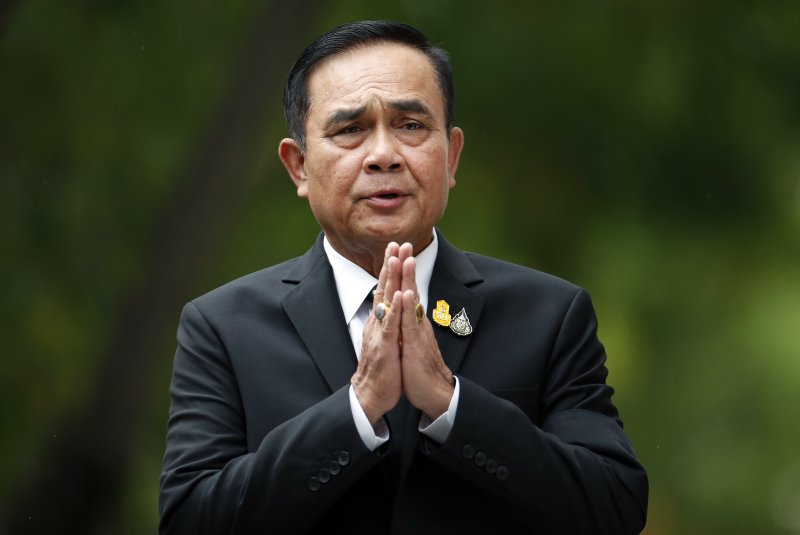
Thai Prime Minister Prayuth Chan-o-cha denied a local media report alleging that Thailand is helping Myanmar’s military amid a crackdown against pro-democracy protesters. File Photo by Rungroj Yongrit/EPA-EFE
March 23 (UPI) -- Thailand's prime minister denied assisting Myanmar's military amid an ongoing crackdown against pro-democracy protesters.
Prime Minister Prayuth Chan-o-cha said his government has not provided any supplies to Myanmar's forces, the Bangkok Post reported Tuesday. The military has maintained authority since staging a coup Feb. 1.
Prayuth's statement comes after a local media report suggested that Thailand's army delivered 700 sacks of rice to Myanmar army units on Myanmar's eastern border, the report said. The two countries share a 1,500-mile boundary.
The prime minister, who led a coup that forced former Prime Minister Yingluck Shinawatra out of power in 2014, said Thailand sent food to people in the border area for "humanitarian reasons," and that the Thai government has a long-term relationship with border villagers originating from Myanmar.
"Since the area has not yet been clearly demarcated, no one in the area has been allowed to cross the border and buy food on the Thai side of the border, but they can order goods directly from vendors," Prayuth said.
"Therefore, don't use the issue to accuse the Thai government of supporting Myanmar's military rulers. That's not true."
Prayuth previously revealed he received a letter from Myanmar's Gen. Min Aung Hlaing, commander of the country's army, in February.
The Thai leader at the time said he "supports" Myanmar's political process and that it is "their business what they will do next."
"What we need to do today, though, is to maintain our good relationship as much as possible because it affects the people especially economic and cross-border trade aspects which are important at this moment," Prayut said last month.
Thailand has stayed the course of "non-interference" after other ASEAN member states -- Indonesia, Malaysia and Singapore -- criticized the use of force in Myanmar.
The civilian death toll continues to rise in the country.
Myanmar Now reported Tuesday the junta killed eight civilians, including a 14-year-old boy in Mandalay.
The boy had no involvement in the protests, according to reports.

Thai Prime Minister Prayuth Chan-o-cha denied a local media report alleging that Thailand is helping Myanmar’s military amid a crackdown against pro-democracy protesters. File Photo by Rungroj Yongrit/EPA-EFE
March 23 (UPI) -- Thailand's prime minister denied assisting Myanmar's military amid an ongoing crackdown against pro-democracy protesters.
Prime Minister Prayuth Chan-o-cha said his government has not provided any supplies to Myanmar's forces, the Bangkok Post reported Tuesday. The military has maintained authority since staging a coup Feb. 1.
Prayuth's statement comes after a local media report suggested that Thailand's army delivered 700 sacks of rice to Myanmar army units on Myanmar's eastern border, the report said. The two countries share a 1,500-mile boundary.
The prime minister, who led a coup that forced former Prime Minister Yingluck Shinawatra out of power in 2014, said Thailand sent food to people in the border area for "humanitarian reasons," and that the Thai government has a long-term relationship with border villagers originating from Myanmar.
"Since the area has not yet been clearly demarcated, no one in the area has been allowed to cross the border and buy food on the Thai side of the border, but they can order goods directly from vendors," Prayuth said.
"Therefore, don't use the issue to accuse the Thai government of supporting Myanmar's military rulers. That's not true."
Prayuth previously revealed he received a letter from Myanmar's Gen. Min Aung Hlaing, commander of the country's army, in February.
The Thai leader at the time said he "supports" Myanmar's political process and that it is "their business what they will do next."
"What we need to do today, though, is to maintain our good relationship as much as possible because it affects the people especially economic and cross-border trade aspects which are important at this moment," Prayut said last month.
Thailand has stayed the course of "non-interference" after other ASEAN member states -- Indonesia, Malaysia and Singapore -- criticized the use of force in Myanmar.
The civilian death toll continues to rise in the country.
Myanmar Now reported Tuesday the junta killed eight civilians, including a 14-year-old boy in Mandalay.
The boy had no involvement in the protests, according to reports.
